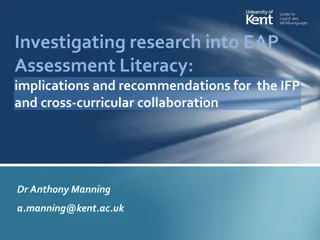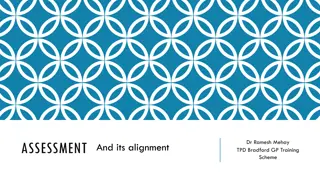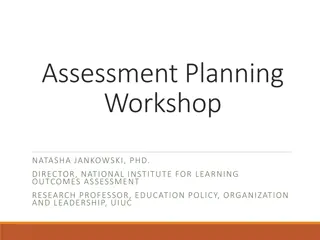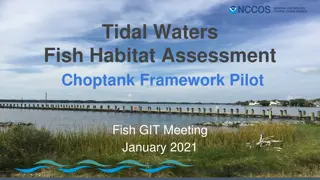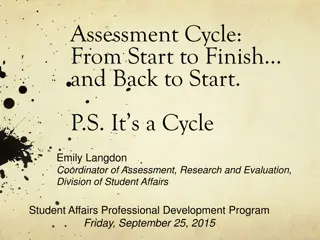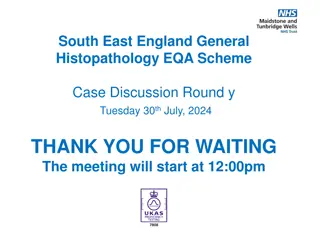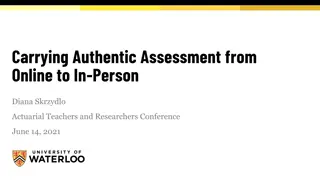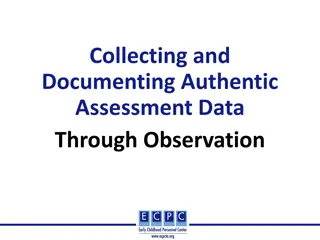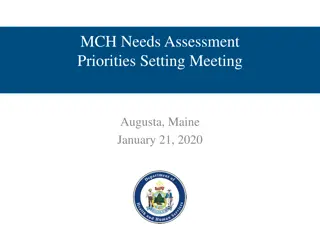
General Education Learning Outcomes at Porterville College
Explore the General Education Learning Outcomes (GELOs) at Porterville College, including the assessment process, new GELO statements, and the significance of GELOs in shaping students' skills and knowledge. Discover the importance of effective communication, critical thinking, civic engagement, and personal development in the educational journey.
Download Presentation

Please find below an Image/Link to download the presentation.
The content on the website is provided AS IS for your information and personal use only. It may not be sold, licensed, or shared on other websites without obtaining consent from the author. If you encounter any issues during the download, it is possible that the publisher has removed the file from their server.
You are allowed to download the files provided on this website for personal or commercial use, subject to the condition that they are used lawfully. All files are the property of their respective owners.
The content on the website is provided AS IS for your information and personal use only. It may not be sold, licensed, or shared on other websites without obtaining consent from the author.
E N D
Presentation Transcript
GELO Assessment Curriculum Committee August 27, 2024
Plan for GELO Assessment Overview of GELOs New GELO Statements Timeline for GELO #2 Assessment Improvement Plan for GELO #1
Welcome to GELO Assessment What is a GELO exactly?
What Is a GELO? A General Education Learning Outcome (GELO) is a statement about the knowledge, skills, attitudes, and/or abilities a student is expected to have upon successful completion of the General Education Areas for Porterville College.
Gather evidence from across GE courses Talk about the evidence Make a plan Identify how we can do better
New GELO Statements (Fall 2023) 1. Students communicate effectively and confidently using multiple modes (e.g. reading, writing, speaking, and listening) with consideration for medium, purpose, and audience. 2. Students use quantitative and qualitative thinking, tools, and processes to evaluate complex issues and gather, analyze, and synthesize information and data from multiple sources to formulate evidence-based arguments. 3. Students are prepared to actively participate as informed, responsible, and ethical citizens in political, social, cultural, and environmental matters. 4. Students are prepared to adapt to change, enhance wellness, practice reflection, collaborate with others, and work towards personal and professional goals.
New GELO Statements (Fall 2023) 1. Students communicate effectively and confidently using multiple modes (e.g. reading, writing, speaking, and listening) with consideration for medium, purpose, and audience. (Spring 2024) 2. Students use quantitative and qualitative thinking, tools, and processes to evaluate complex issues and gather, analyze, and synthesize information and data from multiple sources to formulate evidence-based arguments. (Fall 2024) 3. Students are prepared to actively participate as informed, responsible, and ethical citizens in political, social, cultural, and environmental matters. (Spring 2025) 4. Students are prepared to adapt to change, enhance wellness, practice reflection, collaborate with others, and work towards personal and professional goals. (Fall 2025)
New GELO Statements (Fall 2023) 1. Students communicate effectively and confidently using multiple modes (e.g. reading, writing, speaking, and listening) with consideration for medium, purpose, and audience. 2. Students use quantitative and qualitative thinking, tools, and processes to evaluate complex issues and gather, analyze, and synthesize information and data from multiple sources to formulate evidence-based arguments. 3. Students are prepared to actively participate as informed, responsible, and ethical citizens in political, social, cultural, and environmental matters. 4. Students are prepared to adapt to change, enhance wellness, practice reflection, collaborate with others, and work towards personal and professional goals.
Timeline for GELO #2 Assessment September 10th: Create a rubric to assess assignments; distribute assessment packets September 26th, October 8th, & October 22nd: Discuss assignment prompts and student work November 12th: Assess how well our students are demonstrating the outcome November 24th: Create a plan for improvement
Improvement Plan for GELO #1 Students communicate effectively and confidently using multiple modes (e.g. reading, writing, speaking, and listening) with consideration for medium, purpose, and audience. Improvements in Teaching to the Outcome Consider teaching students to communicate with confidence (Instructors of GE courses) Improvements in Assessing the Outcome Share the conversations we are having about GELOs with our divisions including where we have assumptions (for example, that confidence is implied) (Division representatives) Improvements in Assessing the Outcome Consider putting GELOs on GE course syllabi (Curriculum Chair take the idea to the Academic Senate)
Homework By Friday, September 6th: Send me the two GE-course assessment packets from your division (preferably from different disciplines) Each packet should have Assignment prompt 3 student samples Clearly demonstrating outcome Borderline demonstrating outcome Falling short of demonstrating outcome GELO #2: Students use quantitative and qualitative thinking, tools, and processes to evaluate complex issues and gather, analyze, and synthesize information and data from multiple sources to formulate evidence-based arguments.



